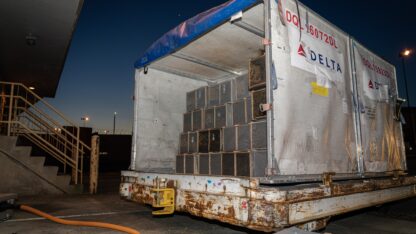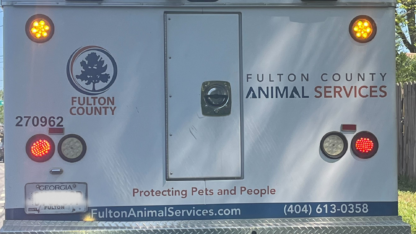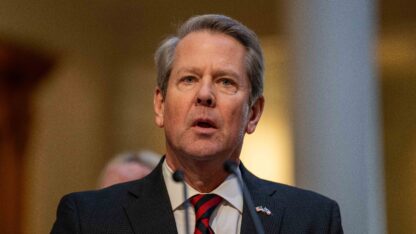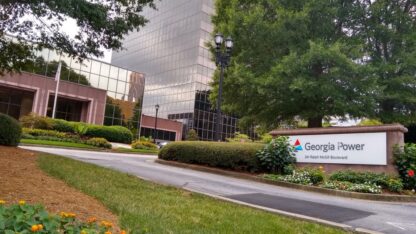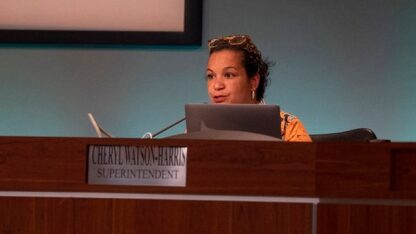Atlanta Mayoral Candidate Walter Reeves Answers Questions On The Environment
WABE sent questions about environmental issues to all of the mayoral candidates. The questions cover climate change and extreme heat, water resources, park maintenance, the tree ordinance and lead contamination in West Atlanta neighborhoods.
The questions are in bold, and Walter Reeves’ answers follow. Answers were edited for clarity, and submitted answers that were not relevant were not included.
The U.S. Environmental Protection Agency recently expanded the area in English Avenue and Vine City where properties may need to have their soil completely removed and replaced, after finding dangerous levels of lead in people’s yards.
What role do you think the City of Atlanta should have in engaging with the community, and what is your plan to address this potential children’s health issue in West Atlanta neighborhoods?
Citizens of Atlanta are very lucky to have the regional offices of the Environmental Protection Agency (EPA) located in the Sam Nunn Federal Center, which is just across the street from the Five Points MARTA Station. The Trump Administration gutted the EPA, so it will take some time for the agency to rebuild and finds its equilibrium. The last time I visited the Sam Nunn Federal Center was one year ago during the pandemic. All federal workers were working remotely from home, except for the Federal Protection Service officers who were guarding the building.
During a recent mayoral forum at Clark Atlanta University, I was very impressed with Professor Tammy Greer of the Political Sciences Department. Once federal workers return to the office, it will be much easier to move forward on this issue. A Superfund already exists to finance such an operation, but many community groups need to be involved for the project to progress in a proper manner.
Atlanta is hot and getting hotter. Often the hottest neighborhoods are in vulnerable communities of color. Atlanta also has many households with high energy burdens that pay a high proportion of their income to energy bills. Not everyone can afford to run the air conditioner all summer or afford efficiency upgrades to keep their homes cooler — and heat can be dangerous.
What role do you see for the mayor’s office in addressing the health risks of extreme heat?
As a young man, Reeves spent three years of his life as an undocumented worker in Europe along with many young adults from al Maghreb, which is a region of North Africa that includes the Sahara Desert! Americans often whine too much, and it is embarrassing.
To address climate change, the City of Atlanta prepared a climate action plan in 2015 on how to cut emissions. The city also made a commitment to achieve 100% clean energy by 2035. But progress towards that goal has been slow.
What, if anything, would you do to keep Atlanta moving towards emissions reductions? And how would you prepare Atlanta communities to weather the effects of climate change, which include extreme heat, increased flooding, mosquito-borne disease and worsening air quality?
I would like to address the issue of mosquito-borne disease in Atlanta. The Centers for Disease Control and Prevention is a federal agency with its headquarters in Georgia for a historical reason. It was settled here to combat yellow fever, which plagued the South. There are still some mosquito-borne diseases that threaten the health and livelihood of Atlantans. One disease is West Nile Virus, which can, in certain cases, cripple a person just like polio. It is important for Atlanta to have a mosquito reduction program, and for citizens to be diligent in taking precautions.
Georgia won a major legal victory in the water wars in the U.S. Supreme Court earlier this year, but there is still another case ongoing. And, Florida, Georgia and Alabama have not found a resolution between themselves. Metro Atlanta is subjected to both floods and droughts — both of which climate change will likely worsen — and we must share our limited water supply within the region and with downstream neighbors.
As the mayor of Atlanta, how would you see your role in addressing and preparing for the region’s water challenges?
I lived in Athens, Georgia when the “Classic City” almost ran out of water during a drought! A Reeves administration will be very vigilant that something similar does not happen in Atlanta.
The truth is that there is not enough water for the rosy projections of future development for Atlanta. I have studied the manual of the U.S. Corps of Engineers. Flint River Farmers need water for their crops. Agriculture is a very big deal in Middle Georgia!
Read answers from other candidates.


